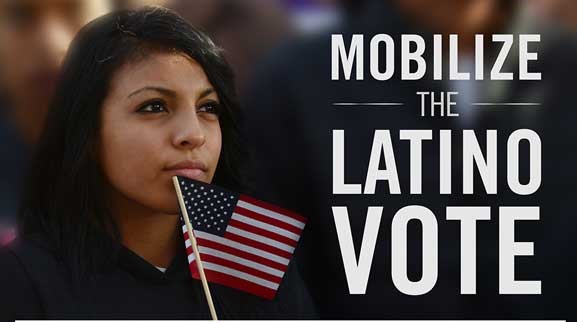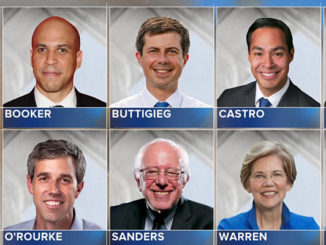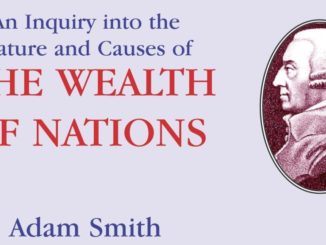
In an election year in which every vote is crucial, Hispanics are scrambling harder than ever to show they can make a decisive difference at the ballot box in November.
The Hispanic vote is fractured, polls show. Democrats are counting on overwhelming support from Latinos, but Republicans and Libertarians are doing all they can to chip away that backing.
“The Latino vote is there for the picking,” said Juan Hernandez, a devout Fort Worth Republican who has advised presidential candidates but says he can’t vote for the GOP presidential candidate this year. “To be honest, we haven’t traditionally voted in big numbers.
“We must get the Latino vote out there,” said Hernandez, a vocal backer of Libertarian presidential candidate Gary Johnson. “If we did vote, we could determine the next president.”
Republican nominee Donald Trump has long offended many Hispanics, with his “build a wall” campaign to keep people from illegally crossing the border and his belief that many who come here illegally are murderers and rapists. But he has tried to soften his stance some on whether illegal immigrants with no criminal records should be deported and has been reaching out to minority communities in recent weeks.
Democratic nominee Hillary Clinton has long reached out to minorities, who make up a key demographic of the Democratic Party, but she disappointed some by not choosing a Hispanic vice presidential candidate, even though she picked Tim Kaine, who is fluent in Spanish, as her running mate.
Recent polls show that Clinton has a narrow lead nationally but a new Washington Post-SurveyMonkey poll drew skepticism by putting Clinton virtually even with Trump in Texas, where there are nearly 5 million Hispanic voters.
“With a larger number of Hispanic voters — probably more than 13 million this year — voting than ever before, they could clearly make the difference in swing states like Florida, North Carolina and Nevada,” said Jim Riddlesperger, a political science professor at TCU.
“For that matter, in any state where the election is very tight, they could make a difference.”
‘Difficult time for Latinos’
Recent polls show that the gap between Trump and Clinton across the country has tightened, even in a variety of battleground states.
As a result, “the Hispanic vote is becoming ever more critical given the discussion in this year’s presidential election,” said Allan Saxe, an associate political science professor at the University of Texas at Arlington. “It was always important but now much more visible and highlighted.”
Hernandez — a prominent Fort Worth Republican with dual U.S.-Mexican citizenship who has served in former Mexican President Vicente Fox’s Cabinet and on U.S. presidential campaigns such as Sen. John McCain’s in 2008 — said he, for one, can’t support Trump.
So Hernandez, a bilingual conservative Christian, jumped on board Johnson’s campaign, hoping to lure other voters, particularly Hispanics, and help boost Johnson’s polling support so that he can participate in the upcoming presidential debates.
This election, he said, represents a crossroads for many: insults against Hispanics and others from the GOP’s Trump or consistently unkept promises from Democrats.
“It’s a difficult time for Latinos,” said Hernandez, who helped create Hispanic Republicans of Texas, a political action committee geared to recruit Hispanic candidates, and stresses he is not leaving the Republican Party.
In Texas, a new effort — Your Vote, Tu Futuro —has begun with the aim of encouraging Latinos to vote.
“But it’s impossible for me to support the party with the platform and candidate it has today,” he said.
No matter which candidate Hispanics vote for, they are expected to make an impact on the presidential race — as long as they don’t stay home.
Just about half of the Latino voters nationwide say they are “absolutely certain” they are registered to vote, according to the Pew Research Center.
Texas has the second-largest Hispanic voter population, behind only California, the center’s research shows.
Here in Texas, a new effort — Your Vote, Tu Futuro —has begun to encourage Latinos to vote. The web-video series touches on issues ranging from the need to vote to how Texas’ voter ID law works.
Making amends?
Trump’s campaign rallies began with his promises to build a wall on the southern border.
As his bid for the White House grew, swelling with support from countless who felt they have been left out of the political process for years, supporters at campaign events including those at a raucous Dallas rally this summer began to chant, “Build that wall.”
And when Trump asks a crowd who will pay for the wall, the crowd yells, “Mexico!”
Trump has long referred to Mexican immigrants as rapists and criminals; accused New Mexico Gov. Susana Martinez, a Hispanic and fellow Republican, of “not doing the job”; and insulted a California judge, saying he should withdraw from a legal case because of his “Mexican heritage.”
Trump’s rants sparked such anger that, earlier this year, a Texas Hispanic congressman wrote an open letter, calling the GOP presidential candidate a racist and telling him, “You can take your border wall and shove it up your ass.”
Trump is now asking for support from minority voters — and many are with him.
A new poll shows that 35 percent of Hispanic voters and 24 percent of African-American voters give Donald Trump a very or somewhat favorable ranking.
He recently ventured into some African-American communities in Detroit and Philadelphia. Former GOP presidential candidate Ben Carson is one of the highest-profile African-Americans helping guide Trump.
Trump created a National Hispanic Advisory Council, softened some speeches about immigrants who are illegally in this country, and talked about his growing support from this key group.
Trump has said he believes he’s making progress courting the minority vote.
He recently went to Mexico City for a quick visit, meeting with Mexican President Enrique Peña Nieto, on what some thought was a peace seeking mission. In Mexico, Trump said he and Peña Nieto didn’t talk about who would pay for his proposed wall.
Peña Nieto later tweeted that he clearly said Mexico won’t be paying. Trump, later that day during a fiery campaign speech in Phoenix, said Mexico will be paying.
Disappointing many who joined his Hispanic advisory council, Trump returned to his aggressive promise to crack down on illegal immigrants who committed crimes. And he reminded supporters that “anyone who has entered the United States illegally is subject to deportation.”
“It appeared for a glimmer of a moment when he traveled to Mexico City to meet with President Enrique Peña Nieto that he was moderating his stance on immigration in an attempt to make a bid for the support of those Latinos who regularly vote Republican (or are true independents) but who have been repelled by his past rhetoric,” said Mark P. Jones, a political science professor at Rice University in Houston.
“His speech in Phoenix, the home of controversial Sheriff Joe Arpaio, snuffed out any belief that he was shifting his position, and quite possibly etched in political stone his current hard-line stance on immigration and undocumented immigrants, with only two months to go until Election Day.”
A recent poll shows that Trump has some positive feedback from minority voters.
In fact, 35 percent of Hispanic voters and 24 percent of African-American voters gave the New York businessman a very or somewhat favorable ranking, according to results of the latest Franklin Pierce University/Boston Herald poll.
But Houston immigration attorney Jacob Monty — who had given Trump a plan to do everything from help “honest, hardworking immigrants” to create a true border security plan — isn’t one of them.
Monty and others resigned from Trump’s advisory council after the Phoenix speech.
“He must want to lose,” Monty posted on Facebook. “He can do that without me.”
Issues with Democrats
Democrats have long included Hispanic and African-American voters as key groups..
Clinton is working with groups such as Latinos for Hillary, and she and her husband, former President Bill Clinton, tout their deep Texas ties that go back to the 1970s, when they worked here to register Texans to vote.
But Hernandez and others say Democrats have repeatedly broken promises to Latinos.
“The agenda for Republicans is to tie their story in to theirs since both Hispanics and African-Americans lean so much to Democratic Party and liberalism,” Saxe said. “Hillary Clinton and Democrats may be taking the Hispanic vote for granted and some may drift toward Libertarian posture, but most will still vote Democrat.
“It is presumed that in future years that Hispanic vote will tilt Texas toward [the] Democratic Party, but that may be an assumption that can be altered in future years,” he said. “I was a bit surprised when Hillary Clinton did not choose an Hispanic as vice president, [which] shows she may be taking that vote for granted.”
Accurate or not, the Washington Post-SurveyMonkey poll shows Clinton and Trump virtually even in Texas, one of the reddest, most conservative states, which hasn’t supported the Democratic presidential nominee since Jimmy Carter ran in 1976.
The poll, which was conducted by The Washington Post and surveyed more than 74,000 voters nationwide, including more than 5,000 in Texas, between Aug. 9 and Sept. 1, showed Clinton up by 1 percentage point, 46 to 45 percent, in Texas.
“Republicans have enough trouble rallying support among co-partisans to worry about courting the Latino vote with Trump at the top of the ballot,” said Brandon Rottinghaus, a political science professor at the University of Houston. “Drop-offs in college-educated, women, and middle-class voters is a bigger worry in 2016 for Republicans.
“Trump’s … statements on immigration and the border wall make it impossible for him to make amends before November,” he said. “This election will be a windfall for Democrats with the Latino vote.”
That remains to be seen, suggests a new Nielsen Co. report on the growing Hispanic influence in America.
“As Hispanics emerge as critical players in the 2016 presidential election, many presume a clear predilection towards voting Democratic, but a closer look at Hispanic voter segments reveals a more complex picture, with a large block that can swing with a political party’s stand on certain issues,” the report states.
“Outpacing the rest of the U.S. in income growth and educational gains, young Hispanics, and particularly Latinas, will shape the country for years to come as the Hispanic population doubles in the next two generations.”



